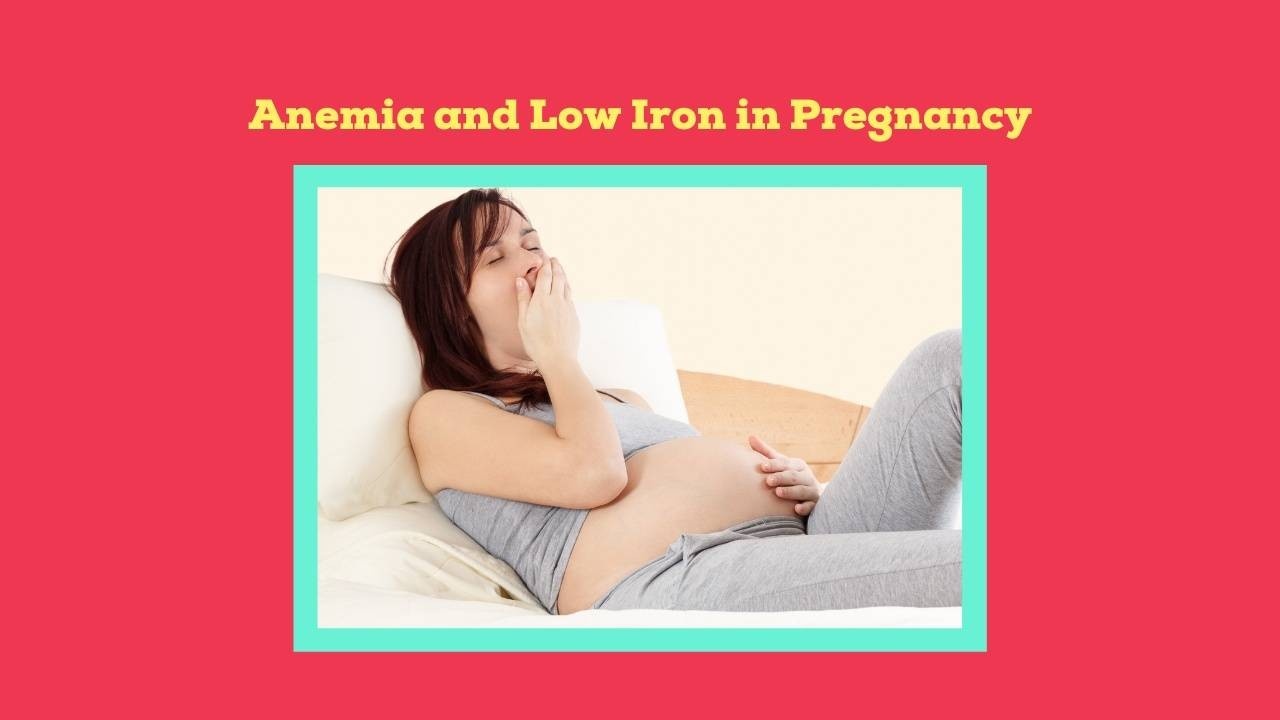Low Iron and Anemia in Pregnancy
Mar 03, 2021
So, what is anemia?
Simply put, Anemia is a reduction in hemoglobin (red blood cells) that causes a decreased ability of your blood to carry oxygen to your cells.
Is anemia normal in pregnancy?
Yes! During pregnancy, a degree of anemia is actually normal!
Now, it’s important to understand that some people may have a pretty big drop from their baseline hemoglobin without crossing these thresholds, so if your levels fall within ‘pregnancy normal’ but you’re feeling quite fatigued then it’s definitely worth pursuing further.
How common is anemia?
Well, we know about all reproductive-age women (pregnant and now) ~ 30% worldwide are anemic at baseline. We know that during pregnancy, this number is even higher and the WHO estimates that over 40% of pregnant people globally are anemic.
So how do we know what anemia needs treatment and what anemia doesn’t?
We need to figure out the cause of the anemia. Is it physiologic anemia of pregnancy (meaning the expected normal dilution of your blood)? Is it iron deficiency? Low vitamin B12? Thalassemia?
We discuss the different types of anemia, and how to test for them in our podcast!
Iron deficiency is one of the most common causes of anemia in pregnancy, occurring in ~ 18% of pregnancies and more commonly presents in the third trimester when iron requirements are the highest.
In addition to iron deficiency anemia, many pregnant people have iron deficiency without anemia (meaning that their iron stores are low, but have not yet caused anemia).
It’s important to re-check your iron mid-way through your pregnancy as iron requirements increase dramatically through pregnancy due to your expanding blood volume, as well as the iron requirements for your growing fetus’s red blood cell production and the growth of your fetus and its placenta!
Iron deficiency is treated with either oral iron or IV iron depending on the tolerance to oral iron and the severity of the anemia.
So why do we care about anemia and iron deficiency in pregnancy?
Lots of research has been done around anemia and the impacts on the developing fetus.
- risk of preterm birth
- low birth weight of infants
- Small for Gestational age babies.
Anemia can also have negative consequences for the pregnant person:
- need for blood transfusion
- sepsis
- cesarean delivery
Supplementing iron earlier and maintaining optimal Hb (10–12 g/dl) throughout gestation has better overall outcomes regarding premature deliveries and low birth weight babies.
Check out our podcast for more info about low iron and anemia in pregnancy!
Also for a 15% discount on everything you buy at Kidstar Nutrients use the code SFH15.
Don't miss a word!
New topics, stories, and information delivered to your inbox weekly.
Sign-up to receive our podcast and blog posts delivered to you directly via email!
We hate SPAM. We will never sell your information, for any reason.



